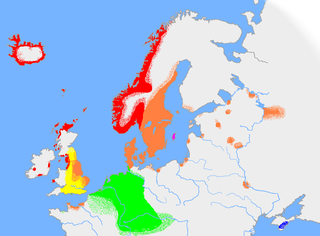A Quote by Virginia Woolf
The interest in life does not lie in what people do, nor even in their relations to each other, but largely in the power to communicate with a third party, antagonistic, enigmatic, yet perhaps persuadable, which one may call life in general.
Related Quotes
A Christian marriage is [not] one with no problems or even a marriage with fewer problems. (It may well mean more problems.) But it does mean a life in which two people are able to accept each other and love each other in the midst of problems and fears. It means a marriage in which selfish people can accept selfish people without constantly trying to change them -- and even accept themselves, because they realize personally that they have been accepted by Christ.
Neither fear nor self-interest can convert the soul. They may change the appearance, perhaps even the conduct, but never the object of supreme desire... Fear is the motive which constrains the slave; greed binds the selfish man, by which he is tempted when he is drawn away by his own lust and enticed (James 1:14). But neither fear nor self-interest is undefiled, nor can they convert the soul. Only charity can convert the soul, freeing it from unworthy motives.
Life and perfection, joy and repose and whatever all the senses desire, lie in the distinguishing spirit, and from it they have everything that they have. Even if the organs lose in power and the life in them decreases in activity, it does not decrease in the distinguishing spirit, from which they receive the same life, when the fault or infirmity is removed.
To solve a marriage problem, you have to talk with each other about it, choosing wisely the time and place. But when accusations and lengthy speeches of defense fill the dialogue, the partners are not talking to each other but past each other. Take care to listen more than you speak. If you still can't agree on a solution, consider asking a third party, without a vested interest, to mediate.
Each pursues his private interest and only his private interest; and thereby serves the private interests of all, the general interest, without willing it or knowing it. The real point is not that each individual's pursuit of his private interest promotes the totality of private interests, the general interest. One could just as well deduce from this abstract phrase that each individual reciprocally blocks the assertion of the others' interests, so that, instead of a general affirmation, this war of all against all produces a general negation.
To the mind which looks not to general results in the economy of Nature, the earth may seem to present a scene of perpetual warfare, and incessant carnage: but the more enlarged view, while it regards individuals in their conjoint relations to the general benefit of their own species, and that of other species with which they are associated in the great family of Nature, resolves each apparent case of individual evil, into an example of subserviency to universal good.
People knew less of each other, perhaps, but they felt more free of each other, and so were more individual. The entire world was not for them only a push or a switch away. Strangers were strange, and sometimes with an exciting, beautiful strangeness. It may be better for humanity that we should communicate more and more.
We may anticipate a state of affairs in which two Great Powers will each be in a position to put an end to the civilization and life of the other, though not without risking its own. We may be likened to two scorpions in a bottle, each capable of killing the other, but only at the risk of his own life.
If a beach-head of cooperation may push back the jungle of suspicion, let both sides join in creating a new endeavor, not a new balance of power, but a new world of law, where the strong are just and the weak secure and the peace preserved. All this will not be finished in the first one hundred days. Nor will it be finished in the first one thousand days, nor in the life of this Administration, nor even perhaps in our lifetime on this planet. But let us begin.
Trauma really does confront you with the best and the worst. You see the horrendous things that people do to each other, but you also see resiliency, the power of love, the power of caring, the power of commitment, the power of commitment to oneself, the knowledge that there are things that are larger than our individual survival. And in some ways, I don't think you can appreciate the glory of life unless you also know the dark side of life



































